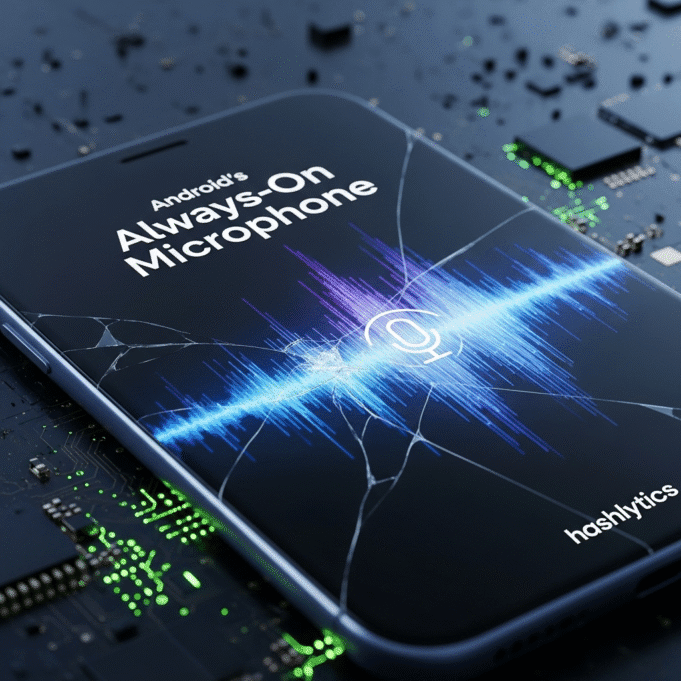Android smartphones continuously monitor audio through their microphones to detect wake words like “Hey Google.” This constant listening function, powered by a dedicated co-processor, uses minimal battery while raising privacy concerns that led to Apple’s $95 million settlement over Siri recordings.
How Always-On Listening Works
Android devices record audio in 1-5 second intervals continuously, even when not actively in use. These brief recordings are processed by a low-power co-processor chip that analyzes audio for specific wake words like “Hey Google” or “Hey Siri.” When the wake phrase is detected, the system extends recording to capture and process the complete voice command. If no wake word is found, the audio snippet is immediately discarded and the process repeats.
| Component | Function |
|---|---|
| Co-Processor | Analyzes audio for wake words using 5-10 milliwatts |
| Recording Intervals | 1-5 seconds of continuous audio monitoring |
| Battery Usage | Approximately 1% of daily battery consumption |
| Supported Platforms | Google Assistant, Siri, Alexa |
Privacy Concerns and Legal Precedent
In 2024, Apple agreed to pay $95 million to settle a class-action lawsuit alleging that Siri recordings were shared with contractors without user consent. The settlement highlighted concerns about how voice assistant recordings are handled and stored by technology companies.
Technical Evolution
Early voice assistants required phones to be plugged into power due to high CPU usage. Modern co-processor technology enables 24/7 listening while consuming only 5-10 milliwatts—roughly 1% of daily battery capacity—making always-on voice detection practical for mobile devices.
How to Disable Google Assistant Voice Detection
Users can disable the “Hey Google” wake word detection on Android devices:
- Open Settings from the notification bar or app drawer
- Navigate to Google settings
- Select Search, Assistant & Voice
- Tap Google Assistant, then Voice Match
- Toggle off “Hey Google” detection
- Optional: Disable Android Auto voice detection
Data Storage and Processing
Audio recordings processed by the co-processor are temporarily stored in memory for wake word detection. According to Google’s privacy documentation, snippets without wake words are immediately discarded and not transmitted to servers. When wake words are detected, subsequent recordings may be sent to cloud servers for natural language processing and command execution.
Privacy Best Practices
- Review and delete voice recordings in Google Account Activity Controls
- Disable voice detection when not needed
- Regularly audit app microphone permissions in device settings
- Consider using manual activation instead of wake words
While always-on listening enables convenient voice control, users should understand the underlying technology and privacy implications. Disabling wake word detection provides greater control over when devices actively record audio, though it sacrifices hands-free convenience.





